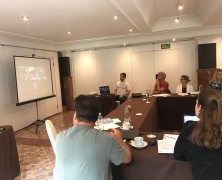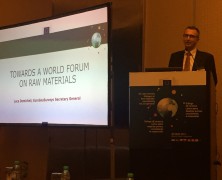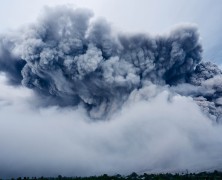La Palma Research Centre hosted the MICA project’s ‘Raw Materials Foresight Methodology Workshop’ on the 10th and 11th of May in Las Palmas de Gran Canaria, Spain. The main objective of the workshop was to frame the MICA foresight methodology recommendations in a minerals policy context on a 2030-2050 timescale. Workshop participants included MICA project partners and a number of external experts on both foresight and raw materials. On the first day of the meeting, the external experts and the research centre team presented examples of foresight case-studies in both raw materials and other fields. These presentations were successful in generating broad-ranging discussion on foresight methods utilised in the case studies, common constraints on the foresight process, and how to establish more accurate proxies during foresight evaluation. The second day began with a review and summary of the findings of the first day. Subsequently, there were further presentations and discussions aimed at establishing a common vision and recommendations for EU minerals policy and the upcoming MICA ‘Raw Materials Intelligence Platform’ (EU-RMICP), which is due to be launched in January 2018. The workshop ended on a positive note after a final group exercise which took place at Columbus House. During this session, workshop participants explored potential pathways for the future of the mineral raw materials sector. The experts also provided recommendations on how foresight studies could aid EU-RMICP users in understanding how different factors may influence the sector over longer time horizons. During the workshop, recommendations were agreed upon to improve EU-RMICP functionality by answering stakeholders’ needs with custom foresight approaches. The group also gave their ideas on how to enhance the development of the MICA ‘Raw Materials Foresight Guide’, which will be released in August...
Outcomes from the Raw Materials Foresight Methodology Workshop in La Palma, Gran Canaria
posted by EuroGeoSurveys
The FORAM network grows: outcomes from EU-Latin America Dialogue on Raw Materials
posted by EuroGeoSurveys
On 8th and 9th May, 2017, the conference ‘EU-Latin America Dialogue on Raw Materials: consolidating the co-operation’ was held in Buenos Aires, Argentina. It was attended by over 50 high-level delegates from Latin American countries, the European Commission, Geological Surveys, international organisations, and European projects. It was the last of a series of conferences in the frame of the EU-Latin America Policy Dialogue on Raw Materials, after the ones held in Lima, Peru (2014), Cartagena de Indias, Colombia (2015) and Santiago, Chile (2016). The ‘Dialogue’, aiming at improving cooperation on raw materials between the European Union and Latin American countries, has focused on cooperation in investment, technology, research and innovation and exchange of good practices on good governance between the two sides of the Atlantic. The Buenos Aires conference subject was on expanding the opportunities for multilateral investments through the new Mineral Development Network Platform; sharing tangible solutions for promptly meeting the increased standards for sustainable mining practices; highlighting the EU companies’ mining expertise and bolster business opportunities. During the conference, participants shared mineral policies best practices. The Secretary General of EuroGeoSurveys gave a speech on ‘Towards a World Forum on Raw Materials’, where he discussed the FORAM project, explaining how the project is organized and the future developments. In particular, he invited the participants not yet involved to become partners of the FORAM Stakeholders Network. The speech raised a big deal of attention, and the European Commission later sent to all participants the information for joining the...
The volcano that gave us the bicycle!
posted by EuroGeoSurveys
The 1815 eruption at Mount Tambora is widely considered the most damaging in human history. It led to global extreme weather change. The harvests failed and 1816 is remembered in Europe as the year without a summer. (https://en.wikipedia.org/wiki/1815_eruption_of_Mount_Tambora) Europe had seen failing harvests since 1812. The extreme summer of 1816 forced people to eat their remaining cattle and horses, famine occurred. The German inventor Karl Drais started to develop a machine that could replace the horse for transportation. In 1817 he introduced “Die Laufmaschine” (Veliocipede). On June 12th 1817 Drais made the first bicycle ride in history, form Mannheim to the Coaching Inn “Schwetzinger Relaishaus”, a distance of 5 miles (8km) (https://en.wikipedia.org/wiki/Karl_Drais) The Geological Survey of Norway will try to initiate an event on June 12th 2017 to mark this 200 years jubilee: The volcano that gave us the bicycle! [Source: NGU – Geological Survey of...



